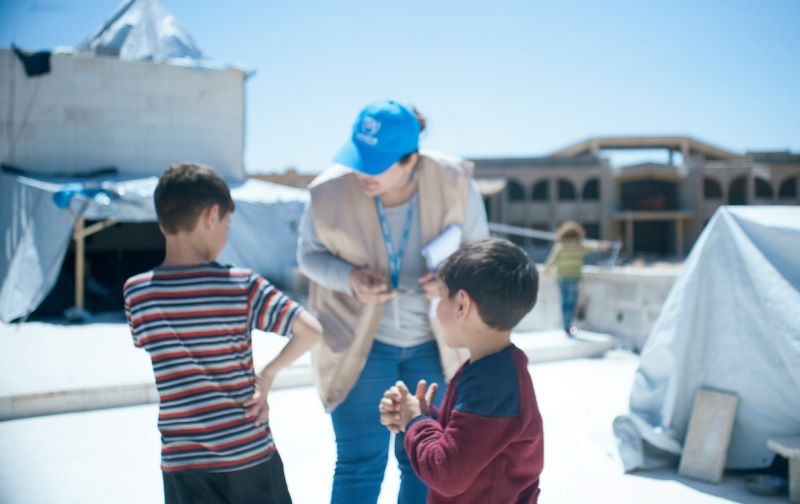The UN’s Role in Restoring Human Rights in Syria
 On December 8, 2024, rebel groups in Syria overthrew the government of former President Bashar al-Assad, forcing him to flee to Russia where the Kremlin granted him asylum. As of now, Syria is undergoing a political transition away from the rule of Assad and into a new government that many hope will restore human rights to the country and improve the livelihoods of Syrians after decades of poverty. On the global level, non-governmental organizations and multilateral organizations are working to help Syrians form a government based on international human rights norms. One of them is the United Nations (U.N.) which has been investigating human rights abuses by Syrian officials via its Commission of Inquiry on Syria (COI).
On December 8, 2024, rebel groups in Syria overthrew the government of former President Bashar al-Assad, forcing him to flee to Russia where the Kremlin granted him asylum. As of now, Syria is undergoing a political transition away from the rule of Assad and into a new government that many hope will restore human rights to the country and improve the livelihoods of Syrians after decades of poverty. On the global level, non-governmental organizations and multilateral organizations are working to help Syrians form a government based on international human rights norms. One of them is the United Nations (U.N.) which has been investigating human rights abuses by Syrian officials via its Commission of Inquiry on Syria (COI).
UN’s Critical in Restoring Human Rights to Syria
On December 12, 2024, the U.N.’s Commission of Inquiry on Syria stated that they have a list of up to 4,000 human rights abusers from the Syrian government since 2011 when the civil war started. The commission, which has been investigating and collecting testimonies remotely, now hopes to finally gain access to Syria to help hold accountable those who destabilized the country and exacerbated its poverty. On the other hand, Geir Pedersen, the U.N. Special Envoy to Syria, has called for lifting sanctions on Syria imposed by the U.S. and the EU so work can begin on rebuilding the country and providing necessary aid. That way the UN and even other international organizations, backed by countries around the world, can start restoring human rights back to Syria step by step.
UN’s Political and Humanitarian Aid Efforts in Syria
The U.N. is putting effort into restoring human rights to Syrian institutions and people by providing life-saving aid to the most vulnerable and helping the interim government politically transition properly. Cindy McCain, head of the World Food Program (WFP), has stated that the U.N. is working to deliver food to the approximately 3 million Syrians who are struggling with severe food insecurity.
Similarly, Pedersen recently met with the key political leaders in the interim government to emphasize the need for a government that is inclusive and represents Syrians of all religions and groups. Although the U.N.’s efforts in Syria so far have been critical, it can only succeed with the backing of its member states who are also lending a hand in the rebuilding of a post-Assad Syria.
The Role of Countries in Rebuilding Syria Post-Assad
Restoring human rights values to Syria requires more than the goodwill of the U.N. and its NGO partners. It also requires the vast resources and connections of countries regional and around the world. For example, the Arab League countries have pledged to support the new Syrian government to ensure that the rights of women and minorities are respected while Turkey has recently reopened its embassy in Syria.
On the other hand, U.S. sanctions on Russia could pressure the Kremlin to hand over Assad to Syria or the international criminal court to face trial over his human rights abuses. In other words, the U.N.’s efforts to help Syria build a more inclusive government and lift millions out of poverty require the assistance of countries with the governance structure on which a post-Assad Syria could model itself.
Revitalizing Human Rights Norms in Syria
The overthrow of the Assad regime in Syria marks a new beginning for Syrians who have struggled with poverty, food insecurity and instability caused by the government. It is also a new beginning for international human rights activists who never even dreamed that this day could come sooner than later. The UN’s current efforts in restoring human rights to Syrian institutions is an opportunity to remind countries around the world why human rights still matter in this global era of politics.
– Abdullah Dowaihy
Abdullah is based in Riyadh, Saudi Arabia and focuses on Good News and Politics for The Borgen Project.
Photo: Unsplash
